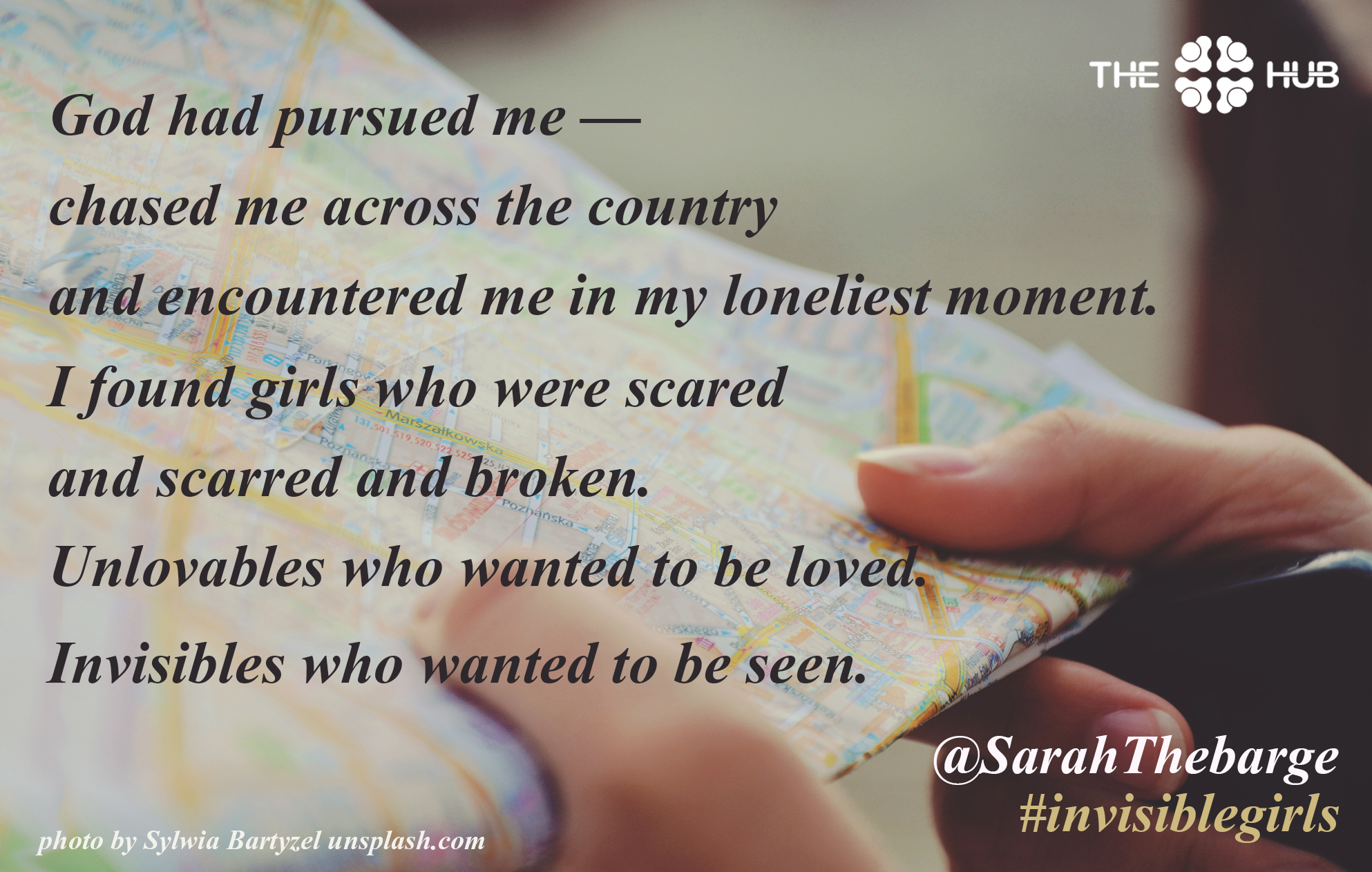I was riding on a crowded train during rush hour in 2010 when a little Somali girl, who couldn’t find a seat on the train, climbed into my lap and fell asleep.
While I was holding her, I started talking to her mom, who told me in broken English that they were refugees from Somalia. Her husband had left the family shortly after they arrived in the U.S., and now she was stranded here, raising five children by herself, without any income or language skills or job training.
Then the woman leaned her head against the window as tears welled up in her eyes. “It’s too much,” she said, shaking her head. “It’s too much.”
I sat there silently, holding the sleeping child while her exhausted, overwhelmed mother cried. And as the minutes dragged on, I grew more and more uncomfortable.
I didn’t have a clue how to help a refugee family. I didn’t have any strong opinions about how to fix the problems with our immigration system. And, if I was really honest, I avoided most people who talked about “social justice” and “immigration reform” because the terms felt overused and overwrought. They seemed to require a significant amount of information and energy, and I didn’t have either of those things.
Shortly before I met the Somali family, I had been diagnosed with breast cancer at age 27. After nearly dying of it, I had bought a one-way ticket from the East Coast to Portland, Oregon, landing in the new city with nothing but a suitcase of clothes and a broken heart.
Even now, as I held the sleeping Somali girl in my lap, I was still undergoing cancer treatments. I had no mental or emotional capacity to rescue a refugee family — most days I felt like I needed to be rescued myself.
“God, you dropped this Somali family into the wrong person’s lap,” I thought as the train traveled down the tracks.
And then I felt an overwhelming peace, almost as if God had whispered in my ear: Just do for this family what I’ve done for you.
God had pursued me — chased me across the country, in fact — and encountered me in my loneliest moment. So I asked the Somali woman for her address and went to check on the family a few days later.
God had loved me when my bald head and mastectomy scars made me feel unlovable. So I began to spend more time with the Somali girls, loving them when their stained clothes and broken English made them feel unlovable.
God had shown me that He was Immanuel, the God who dwelled with me — not instantly changed or fixed me, but dwelled. So I began spending most evenings at the girls’ apartment, sitting with them in their dark, cold apartment because their mom was worried they’d run out of money for food if she spent too much money on utilities.
The more I loved the family, the more I began to see that the reason I used to dislike phrases like social justice and immigration reform was because it made the problems seem like massive, institutionalized, politicized systems. And I don’t have the interest, let alone the ability, to overhaul a system.
But when I dug through the rubble of the system, what I found underneath were people who were just like me. Girls who were scared and scarred and broken. Unlovables who wanted to be loved. Invisibles who wanted to be seen.
I ended up writing a memoir about the adventures I had with the Somali girls as I helped them navigate life in America for the first time. It’s called The Invisible Girls and all the royalties from the book are going into a college fund for the five Somali sisters featured in the story.
As I’ve been on this adventure with the girls (and with God), I’ve discovered that there’s a lot I can’t do in this world. But I can love God, and I can love my neighbor the way God loves me.
And maybe that’s enough.
Sarah Thebarge has a Master’s degree in Medical Science from Yale and was earning a Master’s in Journalism at Columbia University in 2010 when she was diagnosed with breast cancer at age 27. After nearly dying, she sold everything and moved to Portland, Oregon, to start over. While still undergoing cancer treatments, Sarah developed a relationship with a single Somali mom and her five daughters, who taught her how to love and be loved again.
The details of Sarah and the Somali girls’ story of survival, recovery and redemption are recorded in her memoir: The Invisible Girls. All of the proceeds from the book are going into a college fund for the Somali girls. Sarah has written for The Huffington Post and Christianity Today. Her book was chosen as the First Year Experience book for incoming freshman at Mississippi State University, where she delivered the convocation in August 2014. She is also spokesperson for Vanity Fair Lingerie’s Women Who Do campaign and Compassion International.
Bring her to speak to your group or at your church event: Book Sarah Thebarge

Thank you for sharing how God used you and changed your perspective on things. He wants to use each of us if we just let go and let Him.
Blessings